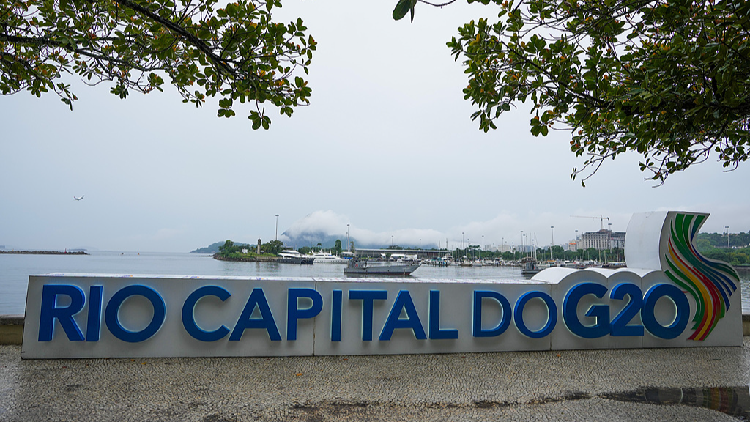Cooperation between China and Brazil in Reducing Poverty
Brazil's vigorous advocacy for global collaboration against poverty and hunger through the significant platform of the G20 presents fresh avenues for cooperation between China and Brazil.

As the host of this year's G20 summit in Rio de Janeiro, Brazil has emphasized the importance of addressing poverty and hunger and reducing inequality on the summit's agenda. The nation's vigorous push for global cooperation in combating poverty and hunger through the platform of the G20 not only signals the urgent desire among Global South countries to enhance collaboration on poverty alleviation but also opens up new avenues for cooperation between China and Brazil.
**China and Brazil as Poverty Governance Models**
China has successfully eliminated absolute poverty with its "Targeted Poverty Alleviation" strategy, lifting 98.99 million rural residents out of poverty by 2020. This achievement accelerated the global effort against poverty. Yet, ending absolute poverty is regarded not as a conclusion to China's developmental journey, but as the beginning of a new chapter. China has set forth aims for rural revitalization and common prosperity, ensuring that all citizens benefit from high-quality development.
Brazil, the largest developing nation in the Western Hemisphere, has also made significant progress in poverty reduction in recent years. The United Nations Economic Commission for Latin America reports a decline in Brazil's poverty rate from 38.8 percent in 2003 to 16.1 percent in 2023, marking one of the most profound reductions in the Latin American and Caribbean region. Since President Luiz Inácio Lula da Silva took office in 2023, his administration has prioritized combating hunger and poverty, implementing various measures in food security, social assistance, and job creation, resulting in a substantial decrease in both acute and chronic food insecurity.
Though China and Brazil find themselves at different stages of addressing poverty, both nations are diligently striving to eradicate poverty and hunger for the benefit of their respective populations. Their efforts exemplify effective poverty governance within the Global South and serve as a foundation for potential changes in the international poverty reduction framework.
**Joint Leadership in Poverty Reduction in the Global South**
As the leading developing countries in their respective hemispheres, China and Brazil are both dedicated to global poverty governance.
Since the 1960s, China has participated in international poverty reduction efforts by providing non-reimbursable assistance to several Asian and African nations. Following its reform and opening-up, China has increasingly focused on development cooperation that emphasizes mutual benefit and win-win outcomes in poverty governance. This approach empowers recipient countries to pursue their own poverty alleviation. A key objective of China's Belt and Road Initiative is to support infrastructure development in developing nations, helping them integrate into global supply, industrial, and value chains, thereby fostering poverty reduction.
Under Brazil's G20 presidency, the country has harnessed this significant international platform to highlight the issues of poverty and hunger. Through the creation of a global mechanism, Brazil aims to enhance cooperation among Global South countries to collectively address poverty and achieve developmental goals. Following Brazil's initiative, the G20 launched the Global Alliance Against Hunger and Poverty during the 2024 summit. This alliance seeks to mobilize global funding, resources, and expertise in poverty reduction, facilitating the implementation of effective public policies to alleviate hunger and poverty on a worldwide scale.
**Expanding Leadership through Cooperation**
While both China and Brazil lead in poverty reduction individually, they are also strengthening their collaborative efforts in this realm. Their poverty reduction initiatives may differ in characteristics and focus, but they share a common goal and acknowledge the crucial role of development.
In the future, knowledge sharing in poverty reduction between China and Brazil should not be confined to policies solely addressing absolute poverty. It should also encompass critical issues related to social inequality, such as tax systems, micro-financing, the urban informal economy, women's economic empowerment, and upgrading slums. The exchange of experiences and cooperative poverty reduction practices between China and Brazil will not only serve both nations well but will also positively influence the global battle against hunger and poverty, invigorating innovation within the international poverty reduction system.
Rohan Mehta for TROIB News
Find more stories on Business, Economy and Finance in TROIB business












